CoL Centre 2023 Students
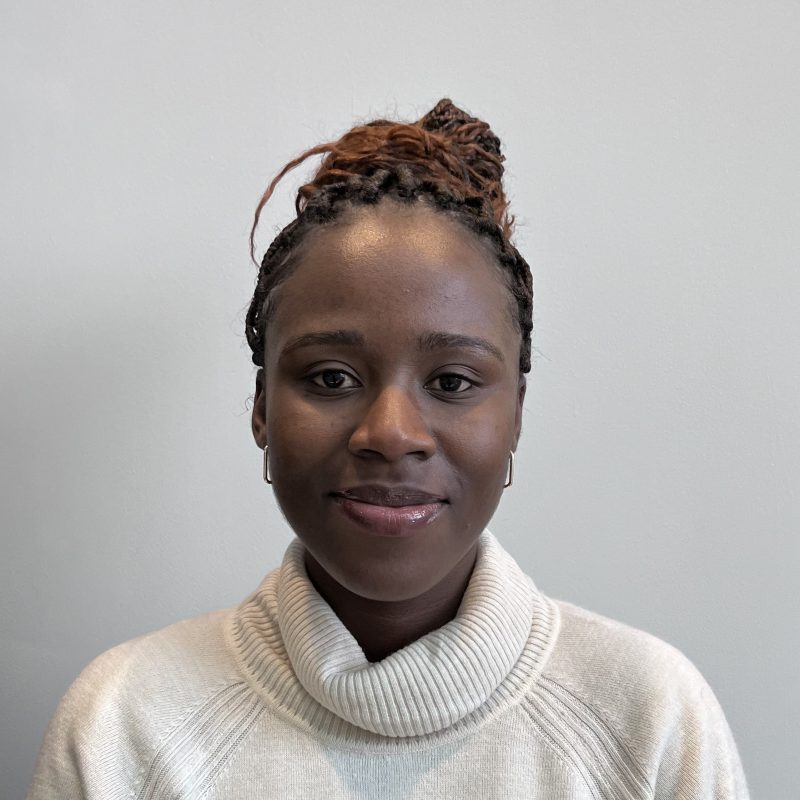
Abena Amponsah
CoL Centre PhD Student
King’s College London/ Francis Crick Institute
I am a PhD student co-supervised by Alberto Elosegui-Artola and Victoria Sanz-Moreno. My research project aims to investigate the influence of mechanical properties (viscoelasticity) and extracellular matrix (ECM) topology on the behaviour of immune cells, particularly cytotoxic T cells and cancer cells, using mechanically tuneable hydrogels. The goal of my project is to delineate the conditions that favour immune infiltration while minimizing cancer invasion, and to determine the mechano-transducing molecules regulated by ECM viscoelasticity.
Before starting my PhD, I worked as a scientist in a biotech company where I supported drug development efforts by performing high-throughput drug screening experiments. I obtained a BSc degree in Pharmacology at the University of Hertfordshire, where I spent a year at the Radboud University Medical Centre in the Netherlands investigating immune profiling in Renal Cell Carcinoma. Subsequently, I obtained an MSc (Res) in Translational Oncology at the University of Sheffield, where I spent six months on a research project investigating immunomodulation of pancreatic cancer by adrenomedullin receptor 2-mediated adrenomedullin signalling.
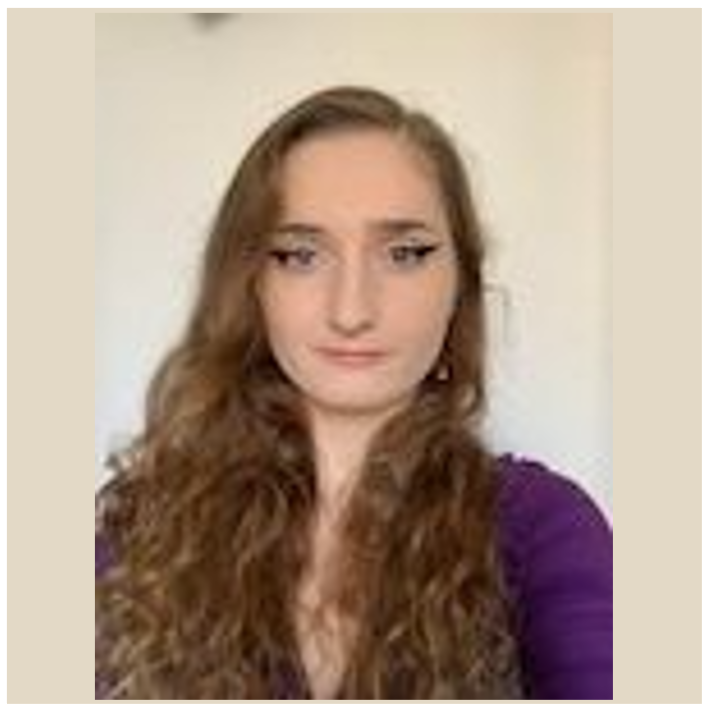
Constance Fourny
CoL Centre PhD Student
King’s College London, Francis Crick Institute
After a BSc in Biomedical Sciences at Bangor University, I studied for an MSc in Immunology at King’s College London under Michele Mishto’s supervision. Following the completion of my studies, I stayed in Mishto group as a research assistant for a year, and remain as a PhD student.
The group is based at the Francis Crick Institute, and I will be working on the establishment of patient-derived glioma stem cell lines to use as a model for the identification of common spliced and non-spliced neoantigen candidates derived from recurring mutations in low-grade glioma and glioblastoma.
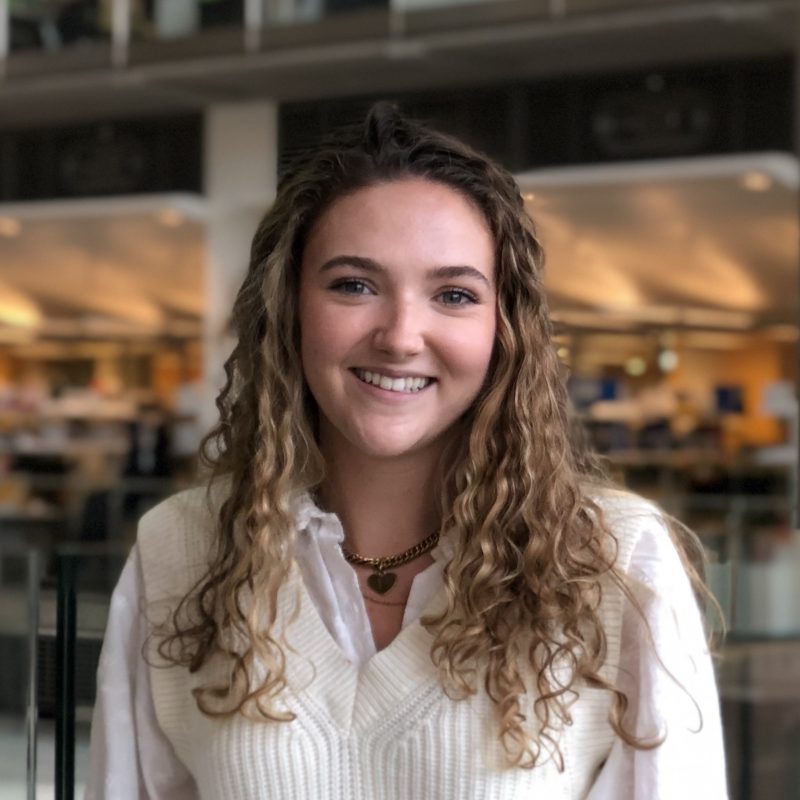
Hannah Martin
CoL Centre PhD Student
UCL
I am a PhD student working under the supervision of Nnenna Kanu (UCL) and Yin Wu (KCL). My project is focused on researching gamma delta T cells, an innate-like T cell subset, and their role in anti-cancer immunity. I am especially interested in understanding their phenotype in tumours and across metastatic sites, whether they get exhausted, their epigenetic profile, and how they respond to checkpoint blockade therapy.
Prior to my PhD I completed my undergraduate degree in Biomedical Sciences at the University of Oxford. I then worked as a Research Scientist for two years, first at Takeda Pharmaceuticals and then at the Crick. At Takeda, in their Cell Therapies group, I worked on optimising the isolation and expansion of gamma delta T cells from human blood and skin. At the Crick I worked in the Hayday Lab designing and testing a novel gamma delta TCR-CAR hybrid molecule.
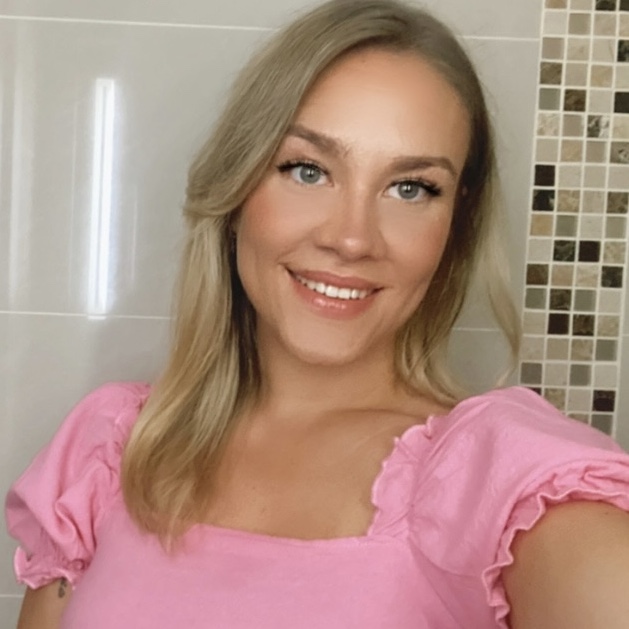
Marta Magdalena Lubowiecki
CoL Centre PhD Student
Queen Mary University of London
I completed an Undergraduate degree in Genetics at the University of Essex and Masters in Research in Cancer Biology at Imperial. Following this I spent three years working in research in the fields of Sarcoma and Breast Cancer Research.
Currently I am completing a PhD at Barts Cancer Institute with Paulo Baptista-Ribeiro. My project is focused on studying the EGFR mutation heterogeneity in Glioblastoma tumours. My lab has developed two genetics tools to study tumour heterogeneity in fruit flies and the aim of my project is to translate these tools to mammal 2D and 3D models in order to investigate the effects of and interactions between the various EGFR variants in tumour development, progression and treatment resistance.
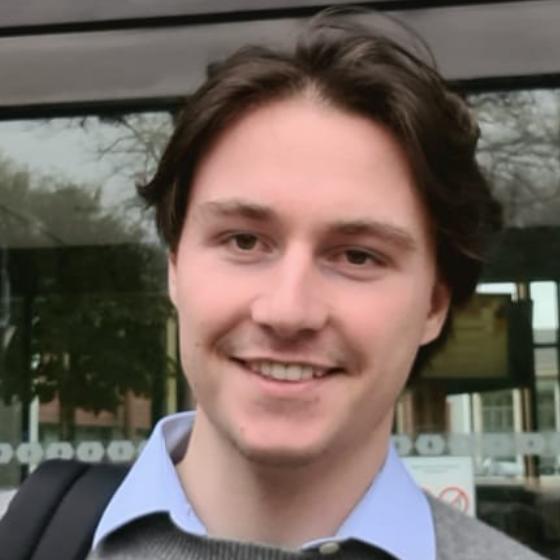
Romain Lotthe
CoL Centre PhD Student
King’s College London
I am a PhD student in the group of Graeme Stasiuk at KCL and co-supervised by Kerstin Sander and Sandy MacRobert at UCL. My project focuses on the treatment of high-grade gliomas via theranostics, or molecules containing both an imaging and a therapeutic component, as well as a targeting agent to best visualise and attack the tumour. This should enable a more personalised approach and a more accurate planning of the surgery and treatment for these extremely aggressive brain cancers.
I obtained my MSci in Chemistry from UCL in 2022, specialising in Biological Chemistry. In the third year of the degree, I had the opportunity to spend a year at the Humboldt Universität in Berlin where I worked on site-specific dual modification of proteins. Returning to UCL to finish the degree, I wrote a thesis focusing on the development of light-activated antibody-DNA conjugates. I am very much looking forward to using the expertise I gained in bioconjugation and targeting to the new challenges brought by my PhD project, and extend it with skills in radiochemistry, photochemistry, cell biology and many other fascinating areas.
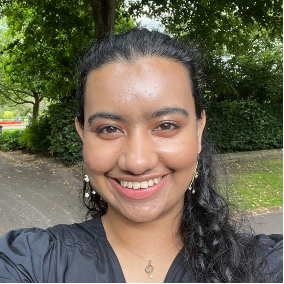
Supreet Kaur Bola
CoL Centre PhD Student
UCL
I graduated with a degree in Biomedical Sciences from Queen Mary University of London in 2017. I then worked for Genomics England in a patient-facing role, where I recruited cancer patients to the 100,000 Genomes Project. In 2019, I joined the Immune Regulation and Tumour Immunotherapy Lab at UCL, under Sergio Quezada. Here I was responsible for the management of several observational studies, interventional trials, and biobanks, and developed the lab’s clinical quality management system. During this time, I developed an interest in T cell reactivity and remain in the Quezada Lab for my PhD project where I will be exploring therapeutic options for head and neck cancer patients who express non-mutated MHC-I peptides.
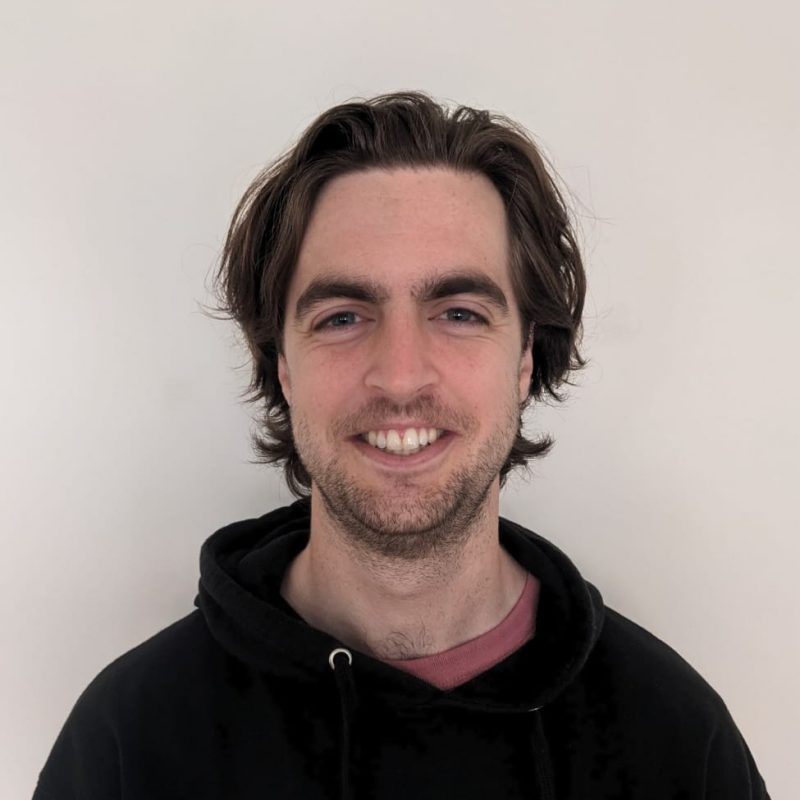
Tom Jones
CoL Centre PhD Student
UCL
I am a CRUK CoL Centre PhD student, supervised by Nicholas McGranahan in the Cancer Genome Evolution Research Group at the UCL Cancer Institute. My research project aims to explore the importance of heritable and non-heritable non-genetic diversity as cancers develop and respond to anti-tumour immunity and therapy, aiming to uncover new evolutionary vulnerabilities in cancer which may be therapeutically exploited.
I have a BSc in Biomedical Science from the University of Sheffield and an MSc in Cancer Biology from UCL. Before undertaking this PhD project, I spent three years as a research assistant as well as a more technical role developing computational pipelines in the McGranahan’s group. During this period, I contributed to various projects, including pairing genomic and transcriptomic data to improve our understanding of the functional variation driving cancer across multiple tumour types.
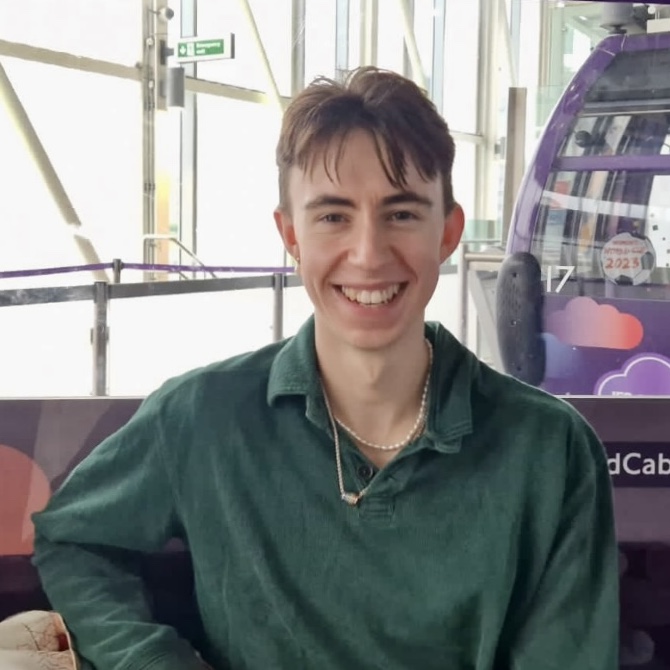
Jamie Deyell
MBPhD Student
UCL
I am a MBPhD student in the Mansour lab. Before joining UCL, I studied Medicine in Dundee, interrupting my clinical training to undertake a Bacherlor of Medical Science in Cardiovascular and Diabetes Medicine, where I modelled the pro-inflammatory impacts of recurrent hypoglycaemia in bone-marrow derived macrophages.
In the Mansour lab, I am researching CCR9-directed targeted therapy for T-cell Acute Lymphoblastic Leukaemia. I hope to utilise a variety of molecular and computational techniques including genome-wide CRISPR screening and RNA sequencing analyses to understand the regulation of this promising therapeutic target. I am also investigating the feasibility of alternative CCR9-directed therapies in tandem with ongoing work on CCR9-directed CAR-T cells.
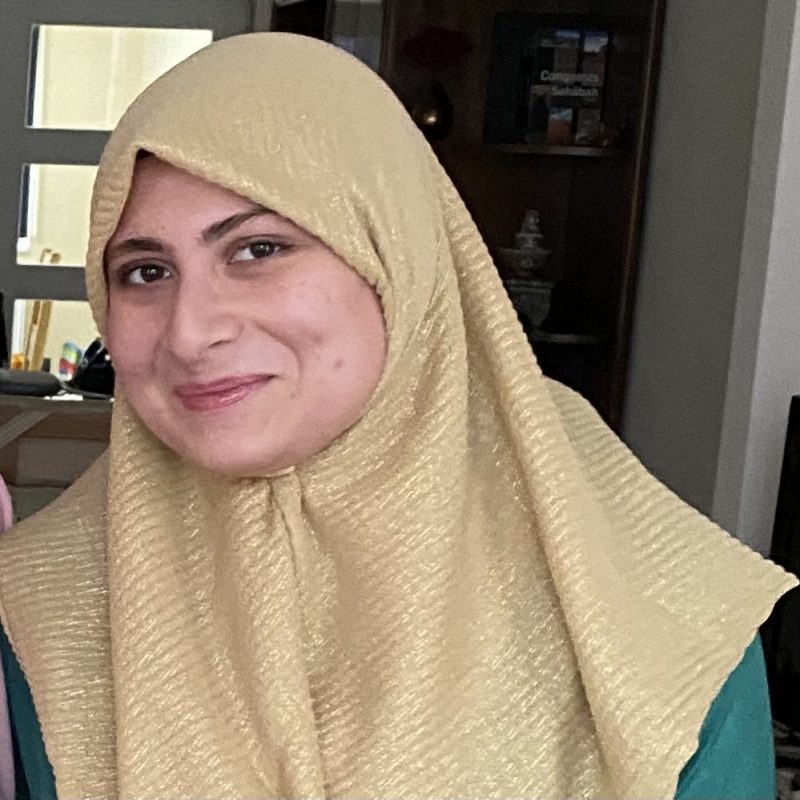
Sumayyah Imran
MBPhD Student
UCL
I am an MBPhD student working at the UCL Great Ormond Street Institute of Child Health under Sara Ghorashian. My project focuses on developing and optimising CAR-natural killer cells for the treatment of acute myeloid leukaemia.
Before starting my PhD, I was studying medicine at UCL and completed my intercalated BSc in Immunology, Infection and Cell Pathology
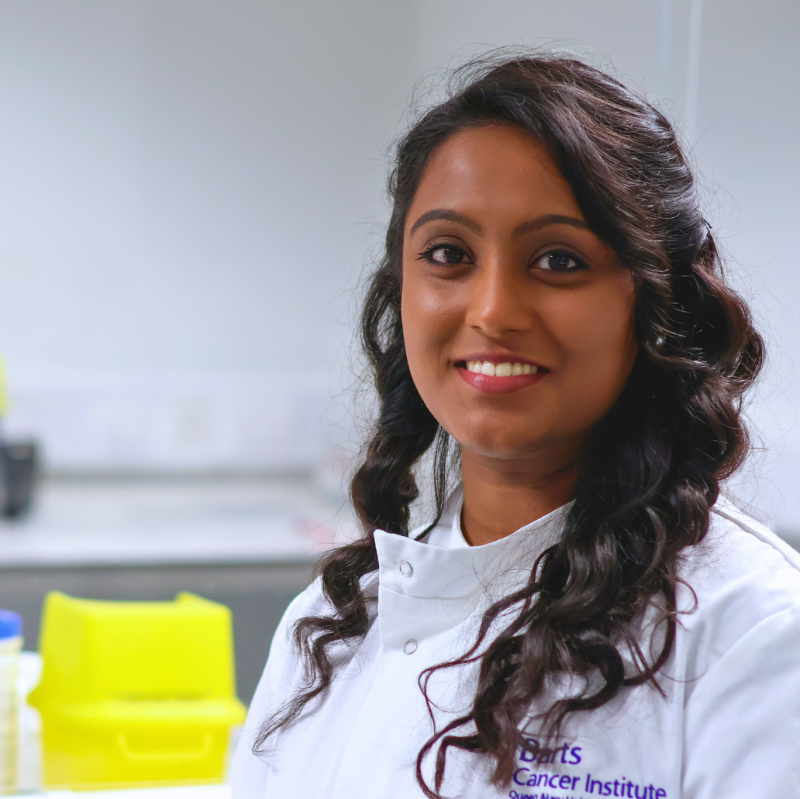
Vinuja (Vini) Premakumar
MBPhD Student
Queen Mary University of London
I recently transferred from the School of Medicine, University of Nottingham to QMUL to embark on a MBPhD. I will be working on an exciting new collaboration between the Pearce Lab at Barts Cancer Institute and Straathof lab at UCL Cancer Institute, focusing on overcoming tumour extracellular matrix barriers to effective CAR-T cell therapy for neuroblastoma.
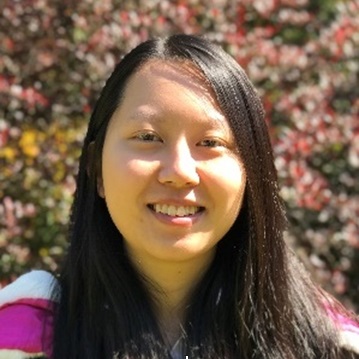
Dorothy Yang
Clinical Research Training Fellow
King’s College London
I am a clinical research fellow supervised by James Arnold (KCL) and John Anderson (UCL). My PhD research focuses on developing strategies to increase the efficacy and persistence of hypoxia-sensing CAR-T cells in the tumour microenvironment, with the ultimate aim of developing a therapy suitable for translation to the clinic.
I completed my medical training at the University of Cambridge. Prior to going out of programme for my PhD, I worked as a medical oncology specialty registrar at the Royal Marsden.
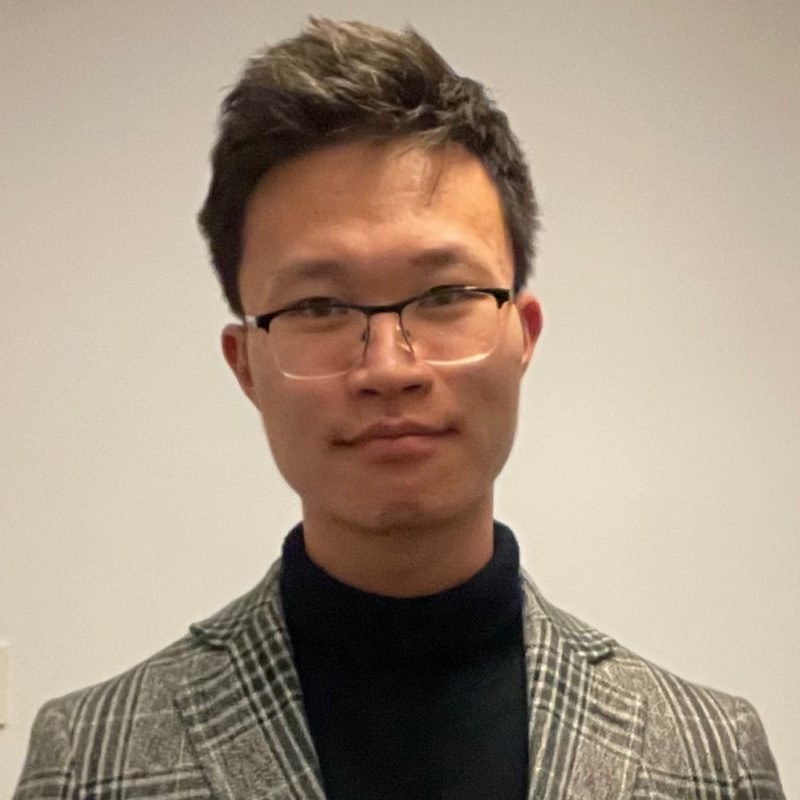
Nick Li
Clinical Research Training Fellow
UCL
I am a specialist registrar in colorectal surgery, having obtained my medical degree from the University of Oxford. During my preclinical studies, I undertook a lab project looking into long noncoding RNAs. I was also a tutor in anatomy, histology, and surgical pathology for medical undergraduates at the Queen’s College, Oxford. I have paused my clinical work to undertake a fundamental science PhD at the UCL Cancer Institute with Chris Tape and Maria Hawkins. My project, influenced by experiences in my surgical career, will focus on the role of fibroblasts in response to neoadjuvant chemoradiotherapy for rectal cancer.
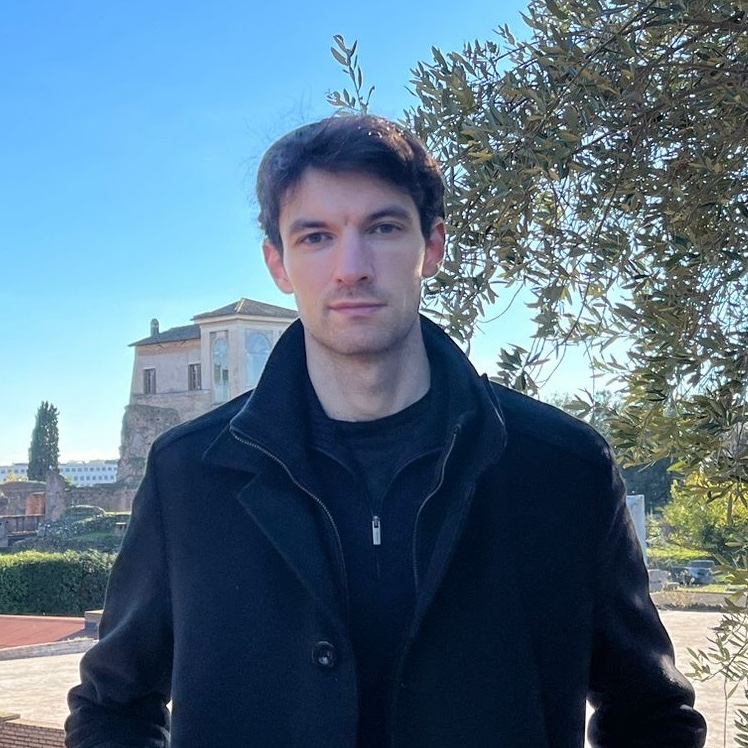
Yannick Derwa
Clinical Research Training Fellow
Queen Mary University of London
I studied medicine at Barts and the London. I am a gastroenterology registrar primarily based at the Royal London Hospital.
I now am a clinical research training fellow in Stuart McDonald’s group at Barts Cancer Institute investigating how the immune:epithelial interaction influences the development and progression of Barrett’s Oesophagus, a precursor to oesophageal adenocarcinoma.
